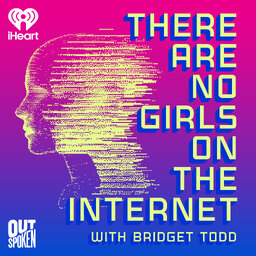DISINFORMED: Immigrant communities are facing a flood of disinformation
Meghna Mahadevan is Chief Disinformation Defense Strategist at United We Dream, the country’s largest immigrant youth led organization. She explains how dis and mis information is threatening immigrant communities and how immigrant youth are fighting for a more just digital media landscape.
Learn more about United We Dream:
Join me on Clubhouse Friday, Feb 26th: https://www.joinclubhouse.com/event/PYzarD1z
Learn more about your ad-choices at https://www.iheartpodcastnetwork.com
In 1 playlist(s)
There Are No Girls on the Internet
Marginalized voices have always been at the forefront of the internet, yet our stories often go over…Social links
Follow podcast
Recent clips

BAFTAs racial slur; Nicki Minaj bot network; TikTok “Psychic” faces Defamation trial for University of Idaho murders – NEWS ROUNDUP!
1:16:39

A TANGOTI Announcement We've Been Sitting On
47:34

Chris Pratt Is Hawking an Anti-Abortion Prayer App; Elon's Grok Is Doxxing Women; DOGE Bros Let ChatGPT Do Their Job; Trump’s Big DEI Loss – NEWS ROUNDUP
1:07:04
 There Are No Girls on the Internet
There Are No Girls on the Internet